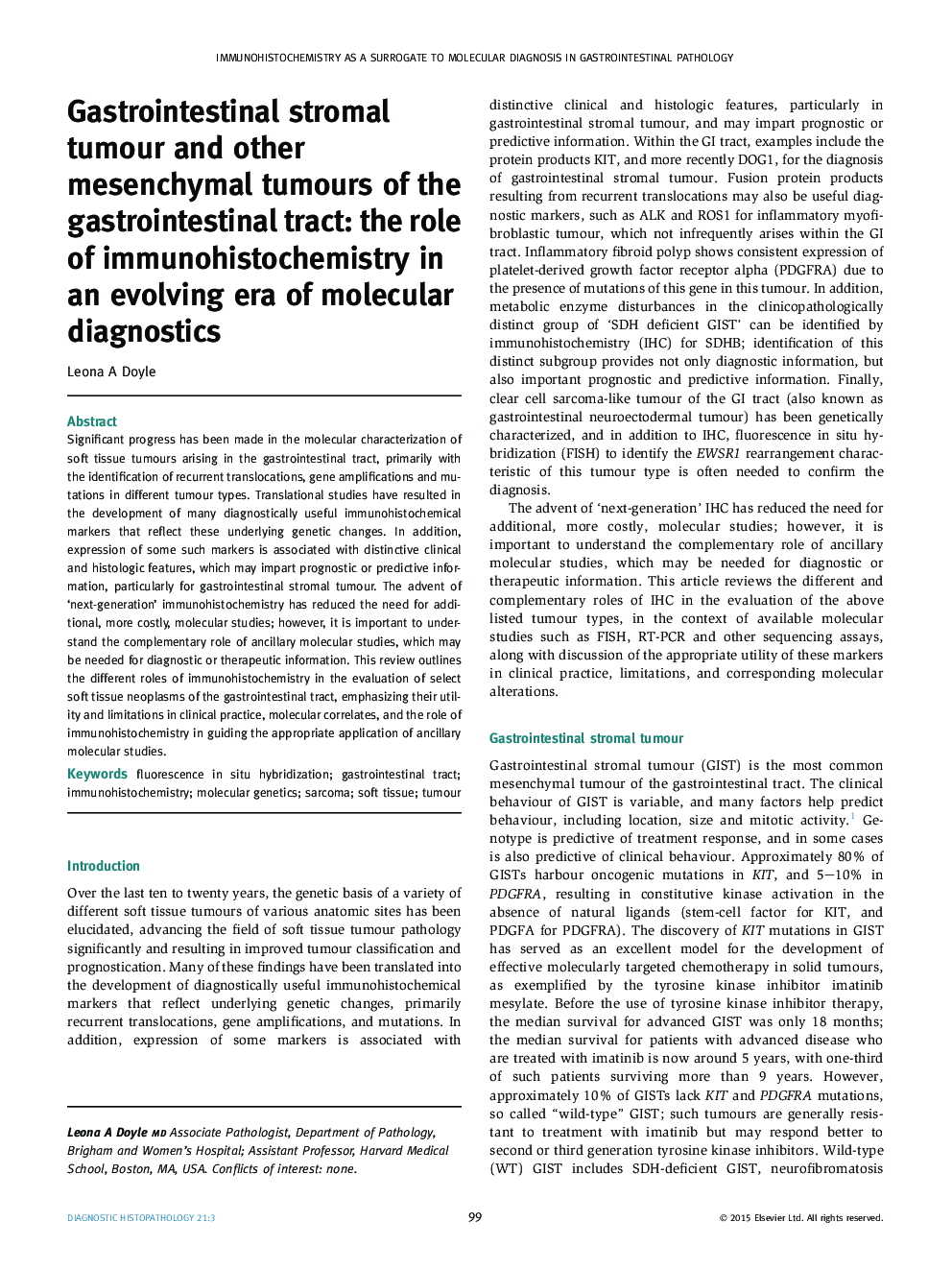| Article ID | Journal | Published Year | Pages | File Type |
|---|---|---|---|---|
| 4131034 | Diagnostic Histopathology | 2015 | 9 Pages |
Significant progress has been made in the molecular characterization of soft tissue tumours arising in the gastrointestinal tract, primarily with the identification of recurrent translocations, gene amplifications and mutations in different tumour types. Translational studies have resulted in the development of many diagnostically useful immunohistochemical markers that reflect these underlying genetic changes. In addition, expression of some such markers is associated with distinctive clinical and histologic features, which may impart prognostic or predictive information, particularly for gastrointestinal stromal tumour. The advent of ‘next-generation’ immunohistochemistry has reduced the need for additional, more costly, molecular studies; however, it is important to understand the complementary role of ancillary molecular studies, which may be needed for diagnostic or therapeutic information. This review outlines the different roles of immunohistochemistry in the evaluation of select soft tissue neoplasms of the gastrointestinal tract, emphasizing their utility and limitations in clinical practice, molecular correlates, and the role of immunohistochemistry in guiding the appropriate application of ancillary molecular studies.
